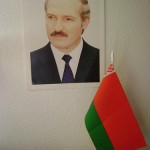
No more caretaker government, demands the King of Belgium. After almost one year of failed attempts to reach an agreement between the French and Dutch-speaking parties, King Albert II has officially asked Elio di Rupo, a French-speaking socialist, to lead a government.
For too long both communities have been struggling over the country’s institutional set up. Several negotiators attempted to break the deadlock, but without success. Now everyone, including the King, is tired of the impasse and Elio di Rupo will receive a second chance to break the cycle.
Last year he failed to create a government coalition, but his role will be slightly different this time. Until now the King had only appointed politicians to find a consensus for a new government, the so-called “preformateurs”. Now he actually asked Elio di Rupo to form his own government and become Prime Minister. A new strategy that triggers a paradoxical feeling: either the situation will soon be solved, or things will get really desperate.
Even if Elio di Rupo succeeds, the real problem will yet have to be solved. The separatist Flemish Nationalist party, which won the largest share of votes in last year’s general elections, will not simply give up on achieving more autonomy. They argue that they are tired of subsidizing the poorest part of the country, French-speaking Wallonia. A state reform appears inevitable.

